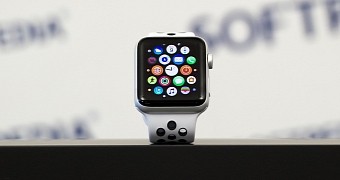A heart rate tracking sensor has become a common feature of today’s smartwatches, and it looks like accuracy has improved so much lately that they can detect abnormal heart rhythms and contribute to diagnosing atrial fibrillation in conjunction with deep neural networks.
A study conducted by the developing team of Cardiogram app for the Apple Watch and researchers at the University of California revealed that smartwatches like Apple’s own device, Garmin, or LG models, can collect data, which when analyzed by advanced tech like neural networks, can diagnose heart diseases with an accuracy of 97 percent.
As part of the study, smartwatches collected heart rate data which was then inspected by DeepHeart, Cardiogram’s deep neural network, to look for possible atrial fibrillation signs, which in their turn can lead to fatal conditions like heart failures or strokes.
“This proof-of-concept study found that smartwatch photoplethysmography coupled with a deep neural network can passively detect AF but with some loss of sensitivity and specificity against a criterion-standard ECG. Further studies will help identify the optimal role for smartwatch-guided rhythm assessment,” the researchers explained in the study (via MR).
Still can’t replace the EKG
The research, which included 9750 participants, 347 of which were suffering from atrial fibrillation, also indicated that smartwatches could help diagnose other heart problems. Using a more complex approach that involves the said deep neural networks, wearers can thus be recommended to get in touch with a doctor should any signs of heart conditions be discovered.
While accuracy is improving, smartwatches still can’t replace a traditional EKG, though by the looks of things, this is the direction that the industry is embracing. Microsoft’s third-generation Band wearable, for instance, which has already been discontinued, was supposed to launch with EKG functionality, though since the product never launched it’s impossible to tell how accurate it was.
On the other hand, the survey notes that smartwatches themselves can achieve higher sensitivity and specificity than the FDA-cleared Apple Watch ECG companion attachment, though this is only valid when the data is supplied to a deep neural network.

 14 DAY TRIAL //
14 DAY TRIAL //